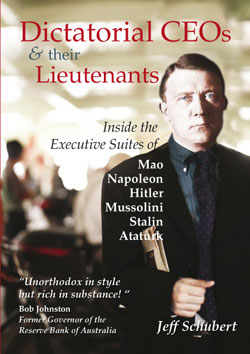Lateral Thinking · 10 April 1989
History, psychology, biography etc
Norman Dixon, On the Psychology of Military Incompetence:
P18 Judging from the attitude of some historians, a putting together of psychology and history is, to say the least, bad form, while a putting together of psychology and military history is positively indecent.
Joachim Fest, Speer: The Final Verdict:
P2 Yet the tendency of professional historians to look down on biography as a genre continues, even though the lives of the protagonists would tie up many loose ends and provide a clearer picture of the process of progressive involvement and persuasion. This disregard for personal drama has robbed history of an entire dimension. This conflict cannot be resolved. Scholarship invariably tries to arrange a confusing flood of images into regular patterns. But the protagonists are made up of the very contradictions which the profession finds intolerable. For human beings are more inconsistent than scholars like to acknowledge.
Daniel Goleman, Working with Emotional Intelligence:
P222 Quoting a neurologist: I find myself fighting for the reviewers to understand that the collaboration is in itself a skill worth fighting for it’s essential to biomedical research. But academics from disciplines like math and history, where research is a solitary pursuit, don’t understand.
John Kay, Financial Times, 21 April 2009
“Max Planck, the physicist, said he had eschewed economics because it was too difficult. Planck, Keynes observed, could have mastered the corpus of mathematical economics in a few days it might now have taken him a few weeks. Keynes went on to explain that economic understanding required an amalgam of logic and intuition and a wide knowledge of facts, most of which are not precise: a requirement overwhelmingly difficult for those whose gift mainly consists in the power to imagine and pursue to their furthest points the implications and prior conditions of comparatively simple facts which are known with a high degree of precision. On this, as on much else, Keynes was right.”
Peter Loewenberg
“Too much history is still written as though men had no feelings, no childhood, and no bodily senses.”


